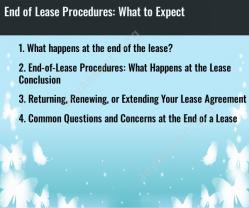What to consider with owner financing?
Owner financing, also known as seller financing, occurs when the seller of a property provides financing to the buyer, allowing them to purchase the property without relying on a traditional mortgage lender. This arrangement can benefit both buyers and sellers, but it's essential to consider several key factors before entering into an owner financing agreement:
Negotiate Terms: Agree on the terms of the financing, including the purchase price, down payment, interest rate, and repayment schedule. Ensure the terms are mutually beneficial and put them in writing in a formal contract.
Title Search and Due Diligence: Conduct a thorough title search and property inspection to verify the property's condition and ownership status. This is crucial to avoid potential issues and disputes.
Down Payment: Determine the amount of the down payment required. A larger down payment can protect the seller's interests and reduce the risk of default by the buyer.
Interest Rate: Agree on an interest rate that is competitive and fair to both parties. Ensure that it complies with usury laws in your jurisdiction.
Repayment Schedule: Define the repayment schedule, including the frequency of payments (e.g., monthly), the number of years for amortization, and whether there's a balloon payment at the end of the loan term.
Security Instrument: Create a mortgage or deed of trust to secure the seller's interest in the property. This allows the seller to foreclose on the property if the buyer defaults.
Legal Assistance: Consider seeking legal counsel to draft the owner financing agreement and ensure that it complies with local laws and regulations.
Creditworthiness of the Buyer: Assess the financial stability and creditworthiness of the buyer to reduce the risk of default. Request financial documentation, such as credit reports and income verification.
Insurance and Property Taxes: Clarify responsibility for homeowner's insurance and property taxes. Typically, the buyer is responsible for these costs, but the agreement should specify the details.
Prepayment Penalties: Decide whether there will be prepayment penalties for the buyer if they decide to pay off the loan early.
Default and Remedies: Clearly outline the consequences of default, including potential remedies for the seller (e.g., foreclosure) and the rights of the buyer to cure the default.
Notarize and Record: Ensure that the owner financing agreement is notarized and properly recorded with the appropriate government authority to protect the interests of both parties.
Exit Strategy: Discuss the possibility of the buyer obtaining traditional financing to pay off the owner financing loan in the future.
Documentation and Reporting: Keep accurate records of all payments, and consider using a loan servicing company to handle payments, reporting, and any escrow requirements.
Compliance with Regulations: Ensure that your owner financing agreement complies with any local, state, and federal regulations, including lending and usury laws.
Consult Professionals: Consider seeking advice from real estate professionals, attorneys, and financial advisors to guide you through the owner financing process.
Owner financing can be a flexible and viable option for both buyers and sellers, but it's crucial to have a well-structured agreement and consider all aspects of the transaction to protect your interests and avoid potential legal and financial complications.
What is owner financing, and how does it work in real estate transactions?
Owner financing is a type of real estate transaction in which the seller of a property finances the purchase for the buyer. This means that the buyer does not need to obtain a mortgage from a bank or other financial institution. Instead, the buyer makes monthly payments to the seller with interest until the purchase price is paid in full.
Owner financing agreements are typically structured as a promissory note and mortgage. The promissory note is a legal document that outlines the terms of the loan, such as the interest rate, repayment term, and balloon payment (if applicable). The mortgage is a lien against the property that secures the loan.
What factors should buyers and sellers consider with owner financing agreements?
There are a number of factors that buyers and sellers should consider with owner financing agreements, including:
- Interest rate: The interest rate on an owner financing agreement is typically higher than the interest rate on a conventional mortgage. This is because the seller is taking on more risk by lending money directly to the buyer.
- Repayment term: The repayment term on an owner financing agreement can be shorter than the repayment term on a conventional mortgage. This is because the seller may want to get the loan paid off sooner rather than later.
- Balloon payment: Some owner financing agreements may have a balloon payment. This is a large lump-sum payment that is due at the end of the loan term. Buyers should make sure that they are prepared to make the balloon payment when it comes due.
- Legal fees: Both buyers and sellers should consult with an attorney to review the owner financing agreement before signing it. This will help to ensure that both parties understand their rights and obligations.
Are there legal and financial risks associated with owner financing, and how to mitigate them?
There are some legal and financial risks associated with owner financing for both buyers and sellers.
For buyers, the biggest risk is that they could default on the loan. If this happens, the seller could foreclose on the property and the buyer could lose their investment.
For sellers, the biggest risk is that they could lose money if the buyer defaults on the loan. Additionally, sellers may have to pay taxes on the interest income they receive from the loan.
To mitigate these risks, buyers and sellers should carefully consider the terms of the owner financing agreement before signing it. They should also make sure that they have the financial resources to meet their obligations under the agreement.
What are the advantages and disadvantages of owner financing for both parties?
Advantages for buyers:
- Lower down payment: Buyers may be able to make a lower down payment with owner financing than with a conventional mortgage.
- More flexible terms: Buyers may be able to negotiate more flexible terms with the seller, such as a longer repayment term or a lower interest rate.
- Easier to qualify: Buyers with bad credit or a limited down payment may be able to qualify for owner financing when they would not be able to qualify for a conventional mortgage.
Disadvantages for buyers:
- Higher interest rate: The interest rate on an owner financing agreement is typically higher than the interest rate on a conventional mortgage.
- Shorter repayment term: The repayment term on an owner financing agreement can be shorter than the repayment term on a conventional mortgage.
- Balloon payment: Some owner financing agreements may have a balloon payment, which can be difficult to finance.
Advantages for sellers:
- Sell the property more quickly: Seller financing can make it easier to sell a property, especially in a slow market.
- Earn interest income: Sellers can earn interest income on the loan they make to the buyer.
- Avoid paying closing costs: Sellers may be able to avoid paying closing costs when they finance the sale of the property themselves.
Disadvantages for sellers:
- Risk of default: Sellers risk losing money if the buyer defaults on the loan.
- Tax implications: Sellers may have to pay taxes on the interest income they receive from the loan.
- Difficult to sell the loan: It can be difficult to sell the loan to another investor if the seller needs the money back sooner than expected.
How to structure a secure and mutually beneficial owner financing deal?
Here are some tips for structuring a secure and mutually beneficial owner financing deal:
- Get everything in writing: The owner financing agreement should be in writing and signed by both parties. The agreement should outline all of the terms of the loan, such as the interest rate, repayment term, and balloon payment (if applicable).
- Have the agreement reviewed by an attorney: Both parties should have the owner financing agreement reviewed by an attorney before signing it. This will help to ensure that the agreement is fair and enforceable.
- Get a title insurance policy: It is important to get a title insurance policy to protect the buyer and











